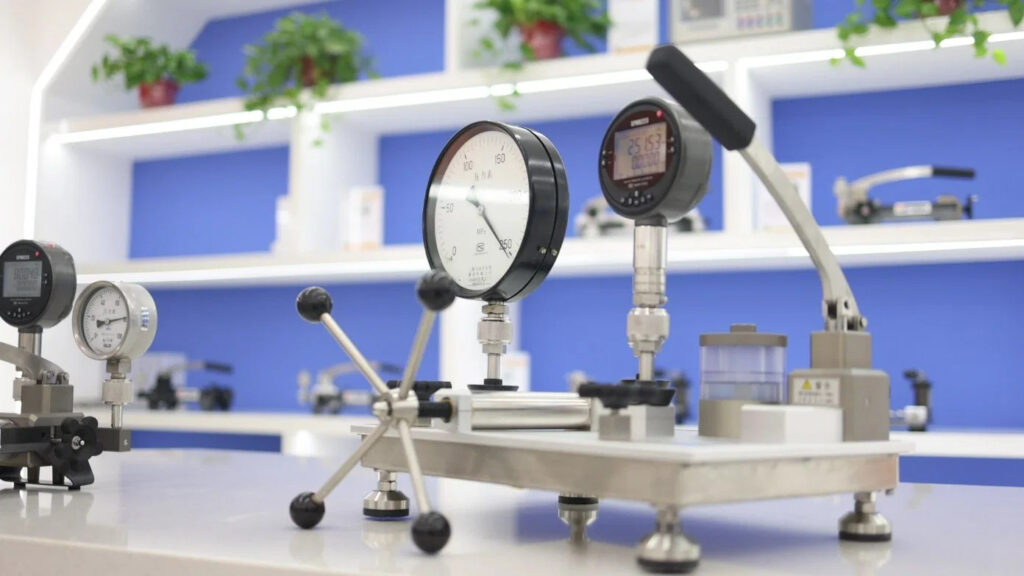Accurate measurements are essential in various industries where precise pressure readings are necessary for optimal performance, safety, and compliance. Pressure gauges are integral tools used across manufacturing, healthcare, and energy sectors. However, for these gauges to function effectively, they must be regularly calibrated.
Pressure Gauge Calibration ensures that these instruments provide accurate and reliable readings, which are crucial for maintaining operational efficiency and safety. This blog explores why it is essential for ensuring the reliability of pressure measurements.
Understanding Pressure Gauge Calibration
Calibration is performed under controlled conditions, ensuring the gauge remains within an acceptable tolerance range. This process helps prevent discrepancies between the gauge’s readings and the actual pressure being measured, which could lead to significant operational issues.
Importance of Accurate Pressure Measurements
Reliable pressure measurements are fundamental to system integrity and performance in industries where pressure control is vital—such as oil and gas, pharmaceuticals, and automotive manufacturing. A pressure gauge with inaccurate readings can lead to critical failures, such as equipment malfunctions, safety hazards, or compliance violations.
It ensures pressure gauges provide accurate, consistent readings for effective decision-making and system control.
Minimising Risks and Preventing Operational Failures
Incorrect pressure readings can result in catastrophic consequences for industrial operations. For example, machinery running under incorrect pressure levels may overheat, fail prematurely, or cause safety hazards such as leaks or explosions.
Regular pressure gauge calibration helps mitigate these risks by ensuring that all pressure readings are accurate and reliable. Proper calibration prevents equipment malfunctioning and enhances operational efficiency, thus reducing unplanned downtime and costly repairs.
Ensuring Safety and Regulatory Compliance
Safety is paramount in any industry, and pressure gauges play a significant role in monitoring and maintaining safe operating conditions. Inaccurate readings could lead to systems operating beyond safe pressure limits, risking equipment failure or hazardous events.
Regular pressure gauge calibration reduces the likelihood of these safety incidents by confirming that gauges provide precise readings within established safety parameters. Furthermore, many industries are governed by strict regulations that require equipment to be calibrated to specific standards.
Failure to adhere to these calibration standards could result in non-compliance, legal penalties, or insurance complications. Ensuring that pressure gauges are regularly calibrated helps businesses meet safety standards and regulatory requirements, safeguarding personnel and operations.
Enhancing Equipment Longevity and Performance
Pressure gauges are crucial for monitoring the operational health of systems and machinery. When pressure is not accurately monitored, equipment can experience undue strain, leading to premature wear and tear.
Regular pressure gauge calibration ensures pressure systems operate within optimal parameters, preventing excessive stress on equipment. This proactive approach reduces the likelihood of component failures and extends the machinery’s lifespan, contributing to long-term cost savings.
When to Perform Pressure Gauge Calibration
The calibration frequency depends on several factors, including the gauge type, usage, and the operating environment. While calibration schedules can vary, it is generally recommended to calibrate pressure gauges annually or whenever the gauge is suspected to have deviated from its correct readings.
Calibration should also be performed after significant events such as repairs, system overhauls, or exposure to extreme environmental conditions. Establishing a regular calibration schedule ensures that pressure gauges consistently provide accurate readings and contribute to operational efficiency.
Conclusion
In industries where precision is essential, pressure gauge calibration is crucial in maintaining reliable pressure measurements, ensuring safety, and optimising performance. Regular calibration is vital to prevent operational failures, minimise safety risks, and ensure compliance with regulatory standards.
Businesses can enhance equipment performance, reduce maintenance costs, and improve overall operational reliability by investing in routine calibration.
Pressure gauge calibration is essential for ensuring reliable and accurate measurements in industrial, commercial, and scientific applications. Calibration involves comparing the readings of a pressure gauge with a known standard, identifying any deviations, and adjusting the device to align with the standard. This process is critical for maintaining measurement precision and ensuring the safety and efficiency of operations.
Reliable pressure measurements are vital for monitoring and controlling processes in industries such as manufacturing, healthcare, and energy. An incorrectly calibrated pressure gauge can lead to inaccurate readings, resulting in equipment malfunctions, safety hazards, or suboptimal performance. For instance, in a manufacturing setting, inaccurate pressure data could disrupt production, compromise product quality, or even cause machinery failure.
Regular calibration not only ensures accuracy but also helps in detecting wear and tear or potential issues within the gauge itself. Over time, exposure to extreme temperatures, pressure fluctuations, or harsh environments can degrade a gauge’s performance. Calibration helps identify such problems early, preventing costly downtime or repairs.
Moreover, pressure gauge calibration is often a compliance requirement in regulated industries. It ensures adherence to industry standards and certifications, instilling confidence in operations and products. Ultimately, calibration guarantees reliable, consistent measurements, safeguarding both productivity and safety.
Pressure gauge calibration is frequently a mandatory requirement in regulated industries, ensuring compliance with industry standards and certifications. It builds trust in operations and the quality of products. By delivering accurate and consistent measurements, calibration plays a vital role in maintaining productivity and ensuring safety.


